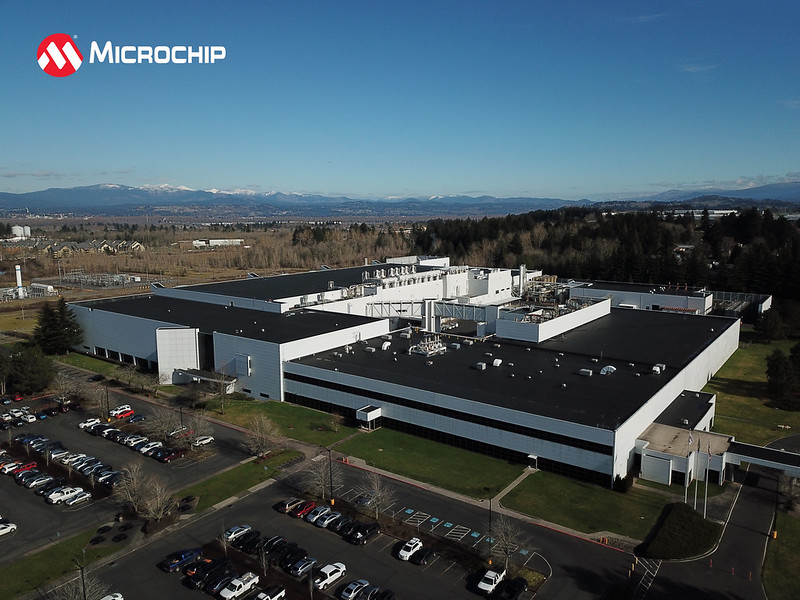Microchip Technology Inc. (Nasdaq: MCHP) reached a milestone in its multi-year, $800 million initiative aiming to triple production capacity at its Gresham, Oregon manufacturing facility. Celebrating close to the halfway mark in a major workforce expansion and capital equipment investment, the efforts are part of Microchip’s larger initiative to ramp up overall production in the U.S. as demand continues to grow for semiconductor products across a broad range of industries.

“We want to recognize the Microchip Gresham team for their dedication and ongoing hard work on this expansion and thank the state of Oregon and its elected officials for the incentives they have approved in support of its completion,” said Ganesh Moorthy, President and CEO of Microchip Technology. “Our steady growth demonstrates the vital role of semiconductors and the importance of the CHIPS & Science Act for providing the economic support required to help level the global playing field for U.S. companies.”
Working with the Business Oregon state economic development agency, the City of Gresham and Multnomah County, Microchip has been approved to receive state and local incentives of approximately $42.4 million for the expansion.
“This good news for Gresham opens a fresh chapter for Oregon’s semiconductor industry with the new federal CHIPS & Science Act generating local dividends in the form of good-paying jobs and economic investment in our state,” said Senator Ron Wyden. “I’m proud to have worked on getting this semiconductor bill into law last year, and will keep pressing on all fronts to ensure Oregonians and the semiconductor companies that employ them benefit from this landmark legislation.”
“Oregon continues to be the center of excellence for semiconductor manufacturing in the country,” Governor Tina Kotek said. “The state’s focus on economic development led to Microchip expanding its operations in Gresham. This is a win for the city, state and nation: it will bring good-paying jobs to the community, keep Oregon a national leader in chip production, and strengthen our country’s manufacturing, supply chain, and national security.”
Microchip has added 300 new employees to its Gresham facility so far, with plans to hire as many as 300 more over the next few years. The company has also made substantial progress expanding and upgrading its 140-acre, 830,000-square-foot Gresham campus so it can manufacture higher volumes of its microcontroller, analog and security products. As part of the investment, Microchip is adding two cleanrooms and more than 160 new tools to its facility, which produces semiconductors from 8-inch wafers.
“Microchip continues to be focused on manufacturing legacy chips—the small, ubiquitous microcontrollers and analog products that power virtually every type of electronic device, including things like cars and e-bikes, home appliances, industrial motors and so much more. The growth of these products is critical for growing local, family wage jobs in Oregon and strengthening supply chains right here in the United States,” said Congressman Earl Blumenauer.
“This expansion is a tremendous achievement for the City of Gresham and will go a long way in providing jobs and contributing to a thriving economy for our city,” said Gresham Mayor Travis Stovall. “We are grateful for the partnership with Microchip Technology as well as the support from our Oregon legislators in moving this important work forward.”
Microchip currently employs more than 900 people at its Gresham campus, with an additional 300 contractors working on-site. The jobs being created at the facility range from production specialists to technical roles in equipment and process engineering, facilities and management.
“Microchip established the Gresham site more than two decades ago, and it remains our largest and most advanced internal fabrication facility and an integral element of our long-term microcontroller and analog business strategies,” said Steve Drehobl, senior vice president of Microchip’s 8-bit and 16-bit business units. “Our $800 million expansion initiative here will enable us to better serve customers worldwide.”
Microchip has more than 120,000 customers across the industrial, automotive, consumer, communications, computing and aerospace and defense markets. Its easy-to-use development tools and comprehensive product portfolio enables optimal design with reduced risk and lower total system cost and time to market.